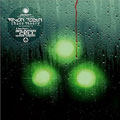|
|
|
|
|
|
|
|
|
|
|
|
|
||||||||||||||||||
 |
|||||||||||||||||||
|
|
|
|
|
June 28, 2005 ../ Grokster, Streamcast Lose BigThe Supreme Court of the United States unanimously ruled that Grokster and Streamcast, as well as other file sharing companies, may be held accountable if their programs induce consumers to illegally exchange copyrighted works.This epic decision overturns the earlier decision by the Ninth Circuit Court of Appeals, something that is usually unheard of, that ruled in favor of Grokster and Streamcast. The Appellate court originally decided that file sharing companies cannot be held accountable for copyright infringement if their software can also be used for legal purposes. However, the Supreme Court saw it very differently. This eagerly awaited decision has severely divided the entertainment and technology industries, as well anyone else with an opinion on the matter. This is a landmark victory for copyright holders and contours a new paradigm for determining the legality of technology that can also be used for criminal behavior. The key factor is the Supreme Court's decision of willful inducement. Translation: did Grokster, Streamcast and others meaningfully promote the use of their products for illicit activities. Grokster has maintained that there is no way for them to police the activities of their users, and they cannot control what transpires between two individual file traders. Unlike the original Napster that had a central server with a directory of everyone's files, Grokster's technology connects users directly to each other. This enabled them to distance themselves from the activities that took place and was a crucial ingredient of their defense. Grokster's move from a central directory, which essentially turned out to be Napster's Achilles Heel, toward a true Peer-To-Peer (P2P) file exchange protocol was strategic on several levels. However, with the new inducement ruling, Grokster may have to defend itself beyond the issue of can the software be used for legal purposes. For instance, did Grokster change the technology for the betterment of their users or to simply skirt the legality of file trading? If it was for the latter, this could be construed as inducement. The decision returns the case to the lower court which will now have evaluate Grokster and Streamcast's involvement in the inducement of illegal activity. The justices found considerable support for the case of inducement by evaluating internal emails, advertising and other circumstances where the companies encouraged their users to engage in illegal file sharing. Attorneys at Keker & Van Nest who represented Grokster stated that they can make a solid argument showing that they didn't promote copyright infringement when the case goes to a lower court. However, they may just be doing a sales job on Grokster since the Justices cited "substantial evidence" to support their decision. Grokster and Streamcast cited the Holy Grail of technology rulings, the 1984 Sony Betamax decision, to bolster their claims. In 1984, the Supreme Court ruled that Sony was not liable for copyright infringement since it's VCR could be used for legal uses as well, mostly "time shifting" - when a consumer records a television show and then watches it when they want to, not when a network dictates. Grokster/Streamcast based their defense on this ground-breaking decision for a number of legal and tactical reasons. Legally Grokster/Streamcast felt that this was their best, if not the only defense of their products, tactically, they knew that many technology industry heavyweights would support their cause since the Betamax decision has created a strong force field that protects the enormous duplication industry from legal campaigns. There are major differences between the use of the VCR and the use of P2P networks. First and foremost is the fact that the primary use of the VCR was to record television shows and watch uncut movies at home. While some users did in fact copy movies to sell or give away illegally, the primary use of the technology was for legal purposes. At the other end of the spectrum, the primary use of P2P networks is to obtain music and movies without paying for them. The percentage of people utilizing Grokster or Streamcast to exchange legal files is miniscule. Thus, even though Grokster may make the claim that they don't openly support the exchange of copyrighted works, its obvious that they specifically designed their software to do just that.
The Future: Even if Grokster,
Streamcast, and any other P2P Networks Du Jour gets sued out of business, file sharing will continue unabated. In fact, Grokster the company may be KO'd, but
its software will still work on the millions of computers that are currently running it since it doesn't utilize a central server. In addition, programmers who
view Shawn Fanning as a Geek Rockstar will still develop new innovative P2P technologies to score chicks. The Wack-A-Mole game between the entertainment lawyers
and the technologists will continue and there is nothing that the copyright holders can do once their content becomes digitized.
Digitized content, whether it's music, movies, software, whatever, becomes free once it's on a network.
It's that simple.
Copyright © 2005 Futuremusic® All Rights Reserved. |
|
|
 As the name correctly implies, Experiments In Sound, is Futuremusic's latest endeavor for pushing electronic music technology to the very edge of what's possible. Experiments In Sound grew out of Futuremusic's avant-garde events in New York City that featured DJ's taking mixing and live sound reinforcement to a whole new level with the very latest gear and software. Now Experiments In Sound has become The Ultimate Mix Contest...
After the tremendous success of our groundbreaking The Next Big Thing DJ Contest, Futuremusic has decided to once again create a new paradigm...
Futuremusic wants to thank everyone who participated in The Next Big Thing 2004. John Digweed, Beatport, Alienware, M-Audio, Native Instruments, IK Multimedia, PVDJ, PK Graphics, Ableton, The DubHouse, Propellerheads, Technics, FreeFloat, The Church, PCDJ and every DJ who entered this year's event thank you. From the sheer number of quality mixes, we can tell you that dance music is thriving in the United States. The amount of outstanding talent and creativity really blew us away, and every DJ who's putting their heart, mind and soul behind the music is a winner. John Digweed has made his decision and the winner is... Think you got skills?? Then start practicing! The Next Big Thing 2005 will kick off at the end of the summer!!
News Archives
|
|
|
|
|
|
|
|
|
|
|
|
|













